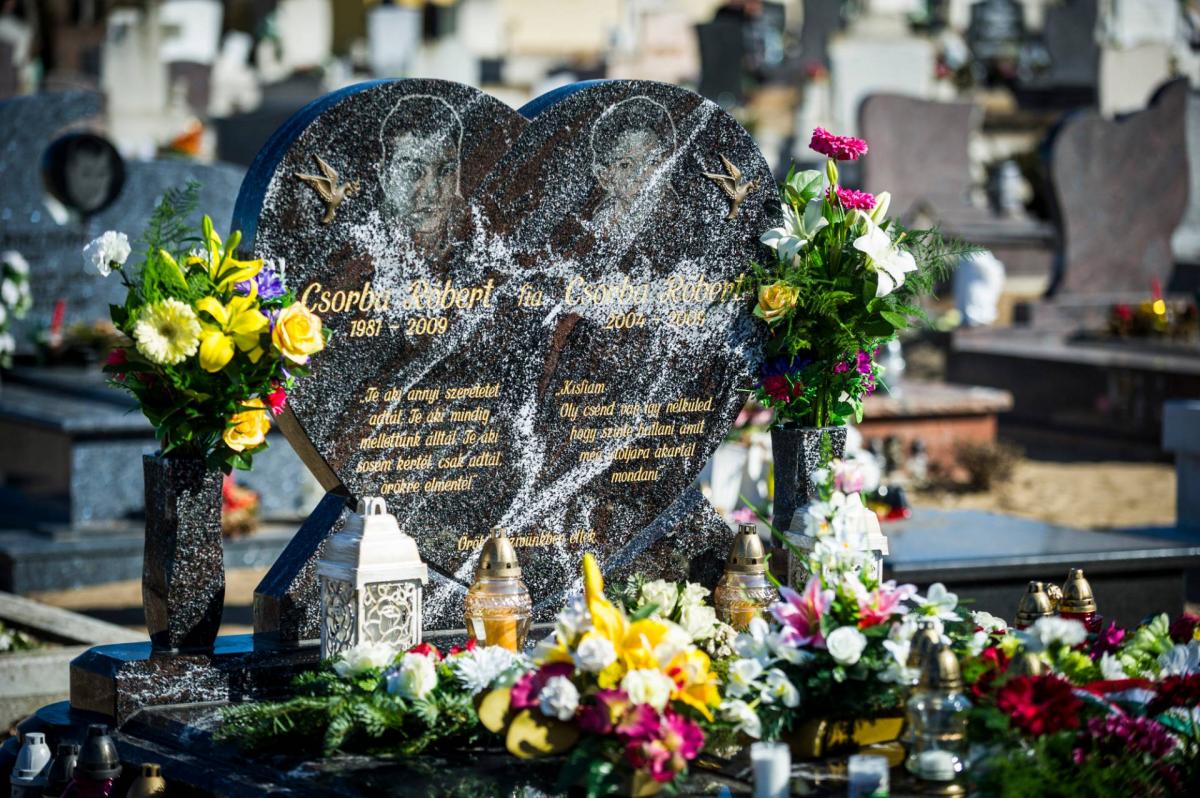Commemoration of the victims of the series of murders against Roma on the day of the Tatárszentgyörgy tragedy - NJBH-EN
null Commemoration of the victims of the series of murders against Roma on the day of the Tatárszentgyörgy tragedy
For 14 years now, 23 February has been the anniversary of an inconceivable barbaric crime, which induces all those of good conscience and responsibility to engage in remembrance and to self-reflection.
On this day in 2009, Róbert Csorba, a Roma man, and his six-year-old son were shot dead in cold blood in their own backyard. The incident was one of a series of ethnically motivated attacks against Roma in 2008-2009. Six persons were killed in the series of criminal offences, a total of 78 shots were fired, 11 incendiary devices were thrown at 7 locations, and in addition to five other persons seriously injured, the life of a total of 55 people were at risk.
The unprecedented series of racist murders shocked society at the time, the perpetrators were later caught and convicted and since then no such shocking crime has been committed in Hungary.
Yet old questions remain and new dilemmas have emerged. Can we hope that the atrocities that were committed have actually brought about a positive change in society? Has there been an analysis of the processes leading up to the events, a summing up of the lessons learned, a real confrontation, alongside the condemnation of violence and the cherishing of the memory of the innocent victims? Have the safety nets in our communities been strengthened to nip in the bud the emergence of racist sentiments, which in extreme cases can even lead to physical violence?
It is a sad fact that the decline in the number of recorded racially motivated, extremely violent physical acts is not due to increased tolerance or a general improvement in the social inclusion of the Roma community. It is more likely, however, that the increased policing measures introduced in the wake of the series of murders fifteen years earlier have led to a significant shift of the manifestation of racist sentiments into the virtual space of social media. The rise of online hate speech is a warning sign for all of us, as social media platforms offer a more effective means of disseminating inhuman ideas and sentiments than any other means of communication in the past. It is a lesson of history that the emergence of physical violence against any nationality or other group of people is most often preceded by the rise of dehumanising hate speech against them.
Therefore, we must strive to ensure that the voices of humanity, tolerance and inclusion are heard loud and clear in the online space! It is our shared responsibility to ensure that racist murders are not repeated in any form and against any minority in our society.
